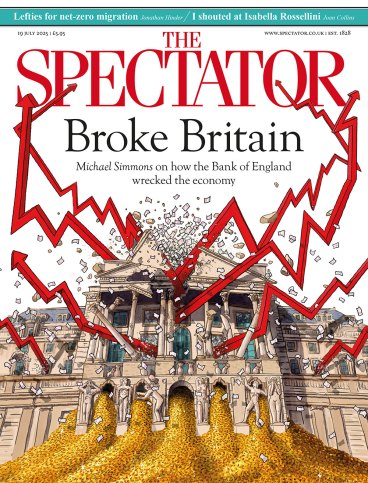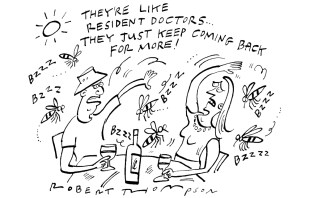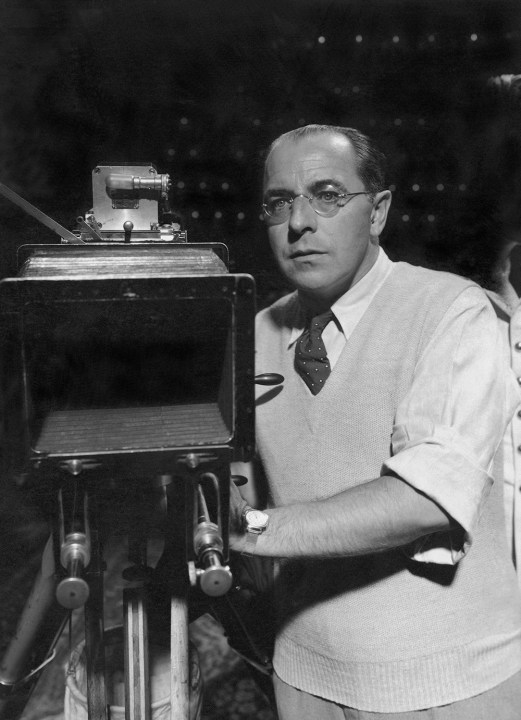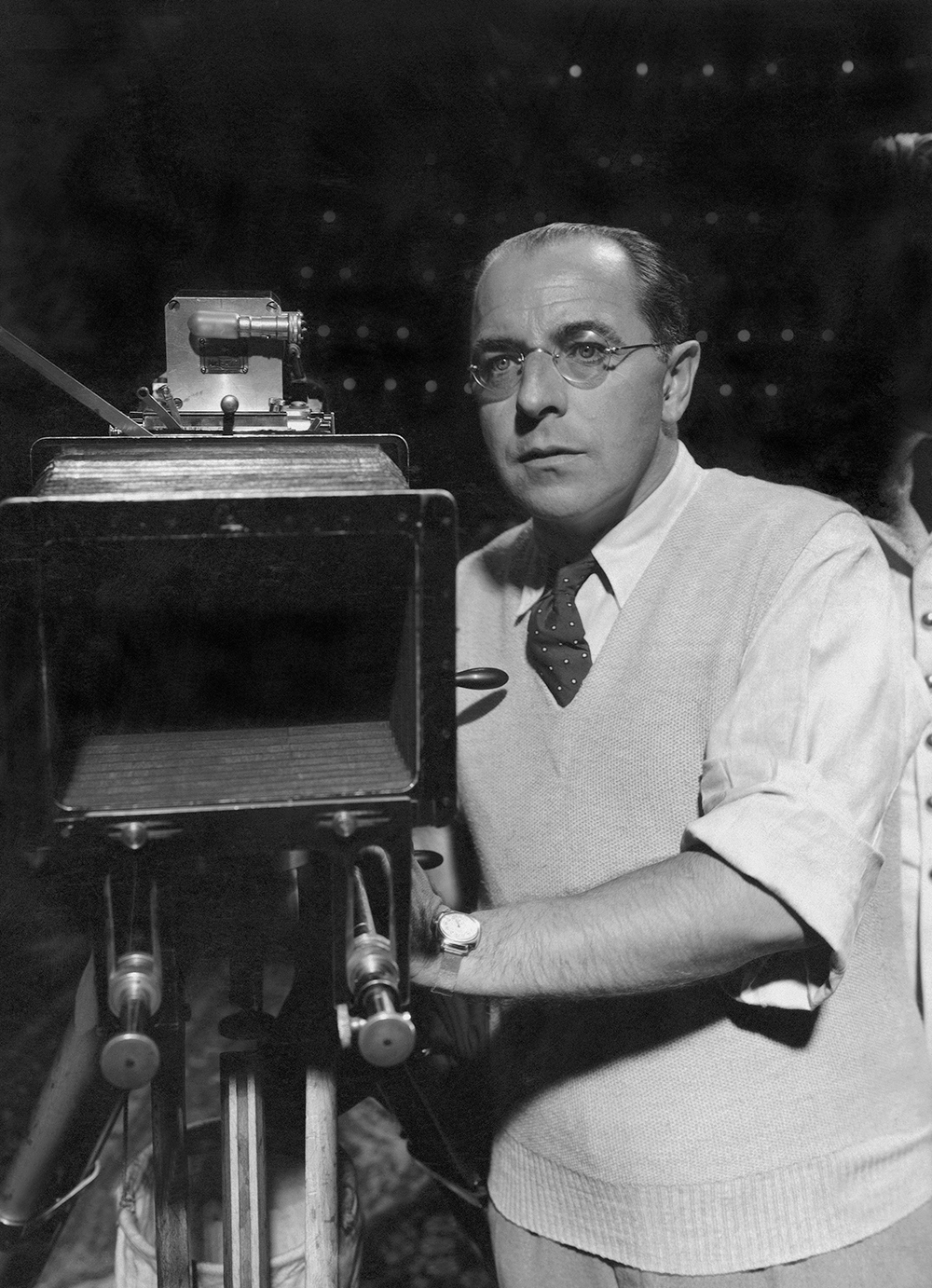
As bombs rain down on Nazi-occupied Prague, Georg Wilhelm Pabst shoots a film – a romantic courtroom drama adapted from a pulp novel by a creepy Third Reich hack, Alfred Karrasch. Although the leading man finds it strange to make any movie ‘in the middle of the apocalypse’, his director insists that ‘art is always out of place’. In retrospect, Pabst assures the star, it will look like ‘the only thing that mattered’.
The discoverer of Greta Garbo and Louise Brooks, and the director of The Joyless Street, Lulu, Westfront 1918 and other prewar masterpieces, Pabst really did attempt to film The Molander Case in Prague in 1944-45. The bizarre, chaotic shoot furnishes Daniel Kehlmann with the climactic scenes of this novel, inspired by the great director’s compromised career. Molander, in which Pabst sought to redeem a slice of Nazi tripe and show that ‘human life is unfulfilled’, did not survive. But would even the most sublime of films have erased the ‘diabolical madness’ of its origin? In Kehlmann’s telling, Pabst even agrees to enlist a concert hall of extras from inmates of the Terezín concentration camp.
So far as we know, Kehlmann invents that particular atrocity. But he does not alter the against-the-tide trajectory that Pabst actually chose in 1939. After years in Hollywood among fellow émigrés, the Vienna-born film-maker returned to care for his sick mother at the ramshackle Austrian ‘castle’ – more a run-down hunting lodge – that his global renown had bought. Trapped by the outbreak of war, ‘Red Pabst’ somehow agreed to make movies for the Nazi film industry. We don’t need propaganda from you, urges Dr Goebbels, but ‘deep films for deep people’ to counter America’s ‘cheap commercial trash’. Seduced by ‘good scripts, high budgets and the best actors’, Pabst for a while fools himself that he will stay true to his gift. Obey the rules and, at the UFA studios, ‘you feel almost free’.
In novels such as Tyll, Fame and Measuring the World, the German-Austrian Kehlmann – whose Jewish paternal grandparents came through the war thanks to forged papers – has created trickster and magician characters whose imagination reframes actuality. As he trudges to the Prague station with a sackload of reels, Pabst the master-editor wants to jump-cut himself to journey’s end. Everything should be ‘up for manipulation’. Kehlmann teases out the curious affinity between Pabst’s talent for cinematic illusion and the fantasy and spectacle of Nazi rule. Trude, his shrewd but cowed wife, comments: ‘A state like this is perfectly suited for cinema.’ The wizard of camera lens and cutting room, Pabst gaslights his audience. Hitler and Goebbels gaslit Germany – indeed, much of the world.

Many books, films and plays have interrogated artists’ entanglement – voluntary or coerced – with Nazi or Soviet tyranny. Others have revived the émigré Hollywood of the 1930s, where we meet Pabst as, in fractured English, he spars in the alien sun with back-slapping, bone-headed studio philistines: ‘No emigrant survived a flop.’ But Kehlmann brings a special set of fictional tools to his task. As a novelist, he loves to tilt angles, change filters, switch viewpoints: hence this story of a rare creative returnee to the Reich.
An agile comedian, Kehlmann can wrench bitter laughs from a landscape of moral catastrophe. Goebbels summons the director but (gaslighting again) asks affably why the old lefty desired to see the minister for propaganda. Might he wish to do ‘penance’ for his radical past? Reality blurs and twists. Befogged, Pabst agrees that he wants to help ‘build Germany’. Kehlmann stages such encounters with immaculate cunning and flair. As the director stumbles into collaboration, the comedy of crossed wires and missed connections slides into the tragedy of life-defining guilt. Marooned in the dank ‘castle’ with Trude and their son Jakob, Pabst endures the embrace of the Reich under the iron fist of his Nazi caretaker, Jerzabek. This janitor from hell is the superbly comic-sinister embodiment of a time and place where power strikes random blows and ‘nothing needs a reason’.
Oblique, eccentric, droll, the light touch with grave themes may remind you not just of Tom Stoppard – whose Leopoldstadt Kehlmann has translated – but Alan Bennett, whom he much admires. Another icon of British humour adds one more surprise viewpoint to this fresco of ambition and delusion. In Salzburg, the never-named P.G. Wodehouse – a comfortable prisoner-of-war but also the notorious broadcaster of anodyne chats on Berlin radio – watches the premiere of Pabst’s 1943 film Paracelsus, about the Renaissance alchemist and healer. With deadpan nonchalance, Wodehouse admires the Gothic frenzy of the movie’s disruptive Dance of Death: ‘The German expertise in these matters is indeed unparalleled.’ Kehlmann has fun with the Wodehouse voice – sardonic, but not silly. His fine translator Ross Benjamin smartly adjusts the register to every shift of tone and timbre. But Wodehouse never saw the Salzburg premiere. As a naive genius likewise ensnared by the Reich, his presence lets Kehlmann view his theme through a fresh lens.
Pabst, who believes that ‘it’s in editing that you make a film’, would no doubt have approved of this patchwork of expertly spliced set pieces. The Director offers a hugely entertaining collage of characters, events and ideas. From wise, tough Louise Brooks to that vainglorious bully Leni Riefenstahl, historical figures deliver witty cameo turns. But Kehlmann himself reframes the past. Young Jakob Pabst, an aspiring artist who joins the Hitler Youth, is a fiction; Kehlmann forges the Molander shoot, including those skeletal extras, out of a documentary void. The novel implies that all creators – not just those complicit with dictators – deploy sorcery and alchemy to transform the raw stuff of life. What’s beyond dispute is the queasy postwar respect in Germany and Austria for Pabst as an artist who ‘held out in the homeland in dark times’. Posterity edits out his shame.








Comments